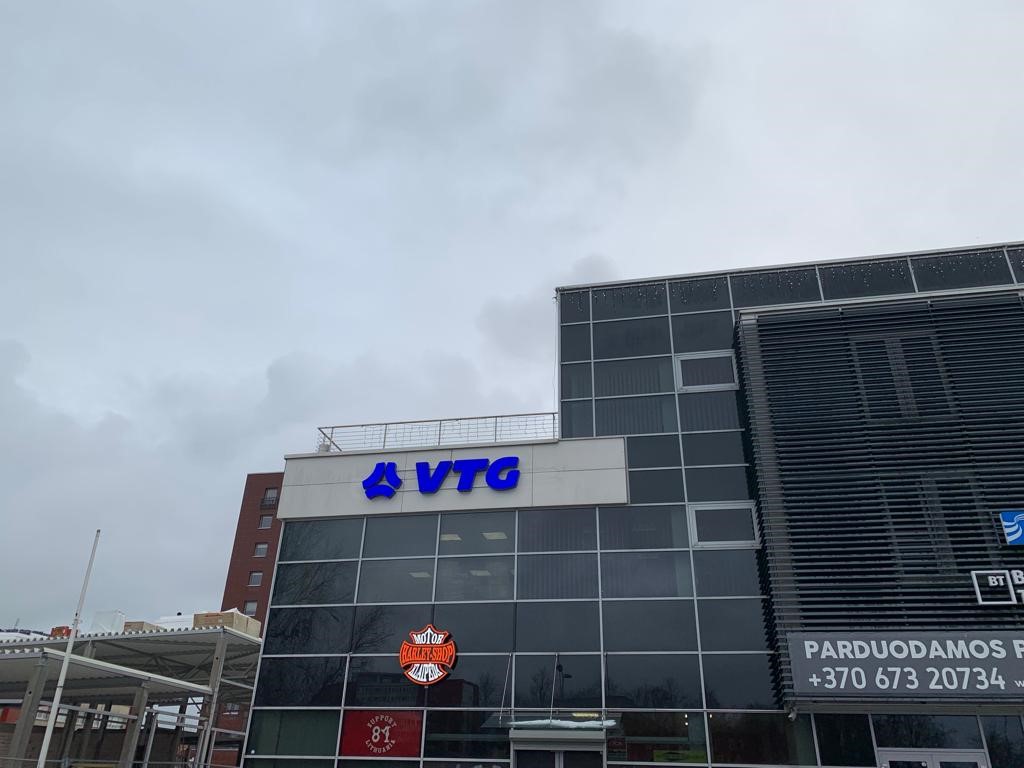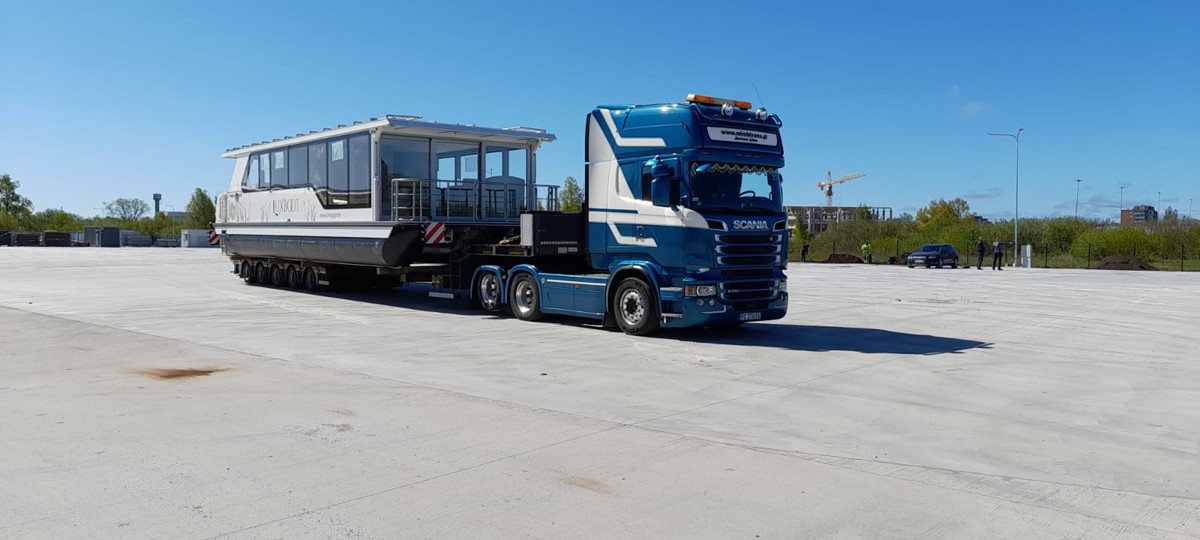Finding solutions – that’s exactly what Violeta Vlasoviene, Managing Director VTG Project Logistics Baltics, and her team were working intensively on again when we spoke in June. “Demand for logistics services is extremely high,” Violeta says. “Owing to Russia’s war in Ukraine and the associated sanctions, our biggest issue right now is reorganizing the transport routes.” The Baltics have traditionally been the gateway from west to east. But that is changing now. “Since March, we’ve become a major hub to Western and Southern Europe – and in addition to being the northernmost ice-free port in the Baltics, Klaipėda is also one of the busiest along the Baltic Sea coast,” Violeta explains.
From Klaipėda, VTG Project Logistics Baltics cultivates close business ties with both the Lithuanian terminals that handle containers as well as general, bulky or liquid cargo, and with other Baltic ports in Riga, Ventspils, Liepaja, Paldiski and Muuga. Our VTG team works with local partners to find the right solution for handling heavy and bulky goods – including for multimodal transports of containerized cargo from Western and Central Europe to Asia and vice versa. Regular sea transports go from the port of Klaipėda to Sweden (Trelleborg and Karlshamn) and back, as well as to and from Germany (Kiel, Lübeck, Rostock and Travemünde).
The nearby Sestokai Intermodal Terminal on the Lithuanian-Polish border is the gateway between European standard gauge and broad gauge in the Baltic states. This is where the trains switch gauges.
Our team in Lithuania has contractual cooperation agreements with all the national railway companies of the Baltic states: LTG (Lithuania), LDZ (Latvia) and EVR (Estonia). Owing to the new situation, our colleagues are currently hard at work strengthening their ties with European railway undertakings to meet customers’ changed requirements for new routes.
VTG Project Logistics Baltics has now also started leasing wagons as a new line of business.

Great dedication in difficult times
Flexibility, inventiveness and performance aptly describe the team’s work. After all, since the founding of VTG Project Logistics Baltics three years ago, all parties involved have effectively been in a state of emergency – first with the coronavirus and now also with Russia’s war in Ukraine.
In the peak pandemic years, there were few opportunities to achieve visibility in the market. “It cost us a lot of energy, and trade fairs and conferences were not held – even though personal contact is the most essential thing when it comes to acquiring new customers. Unfortunately, the pandemic has also caused a number of big projects to be postponed,” Violeta says. “But there have been plenty of contacts and tenders, including from many well-known companies, such as BMW and Kühne + Nagel, and a lot more. And with every successfully completed project, VTG Project Logistics Baltics has become better known in the market. That’s how we have established our good reputation.”
Pursuing new business with vigor and optimism
“When one door closes, another one opens,” Violeta knowingly notes. And that’s why she is still optimistic despite all the adversity – and energetically driving the business forward. After all, the Baltic region continues to be a very appealing market for VTG – especially because no private railway undertakings had previously been operating there. Trains still run on the broad gauge here. At the moment, the standard gauge already goes as far as Kaunas in Lithuania, to where we currently have three trains a week. But the Baltic states will be connected to the European standard gauge beginning in 2026 (see information box).
Hard at work
Another new and important line of business for the logistics team is working as an agent for VTG Tanktainer. “We are currently handling around 60 tank containers a month and are in the process of acquiring new customers,” Violeta says.
In partnership with VTG Rail Logistics Deutschland, VTG Project Logistics Baltics is successfully transporting wind turbines from Holland to Sweden and Lithuania (see photos). And the portfolio also includes very unusual heavy transports, such as houseboats, which VTG regularly transports from Klaipėda to various locations in Germany for the companies Desidus, IGLU Camp Service and Boat Trend. And these are just a few examples from a long list of transport projects big and small.
From tourism to logistics
Violeta Vlasoviene initially wanted to work in the tourism industry and got her start with a bachelor’s degree in Tourism. She then earned a master’s degree in Business Administration from the University of Klaipėda and started working in the logistics industry. In 2000, she took a position with DiRail KG and began building up her extensive experience in logistics. In 2005, Violeta became the head of Baltic operations for CIS-Cargo, a small German railway company. Joint projects involving CIS-Cargo and VTG eventually led her to join the latter in 2019.
Violeta speaks German very well. Although the mother of two grown sons (aged 28 and 18) has never lived in Germany, she has visited often – after all, traveling is still one of her favorite hobbies, just like dancing and reading. Violeta loves to get to know new countries as well as their cultures and traditions. But the thing she loves most is her job …
Rail Baltica: Strong ties on standard gauge
Europe on track: It is a gigantic project – and, once completed, it will connect five EU countries: Poland, Lithuania, Latvia, Estonia and, indirectly, Finland. The new Rail Baltica rail link currently under construction will run from Warsaw to Tallinn via Kaunas and Riga beginning in 2026 – with connections to Helsinki via ferry or the Helsinki-Tallinn Tunnel. These countries will then be connected with the rest of Europe far better than before because their current broad gauge will have been replaced with the European standard gauge. As a result, the times and prices for cargo transports between Western Europe and the Baltic states will improve. As an added bonus, the new railway lines are expected to reduce the number of trucks on the road – and their CO2 emissions. The route has so far been extended to Kaunas in Lithuania.



